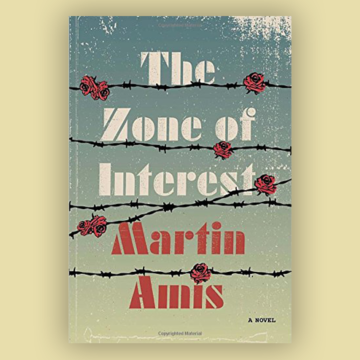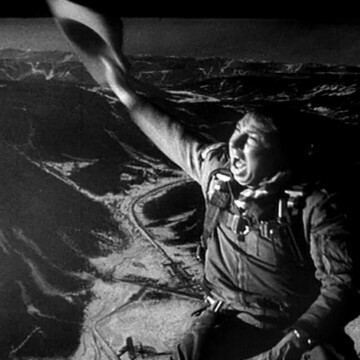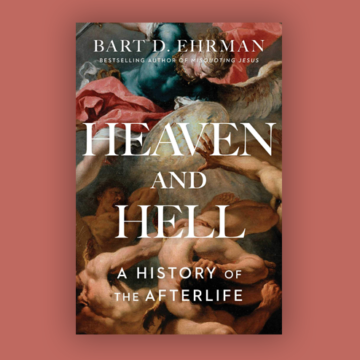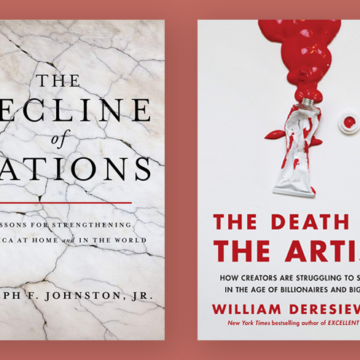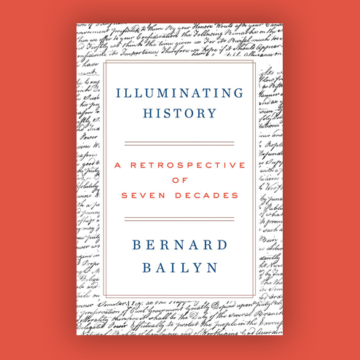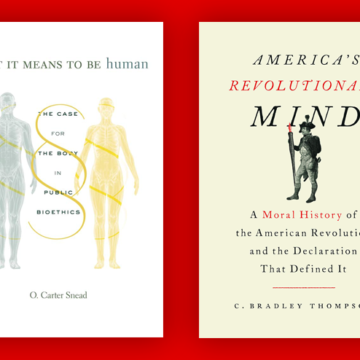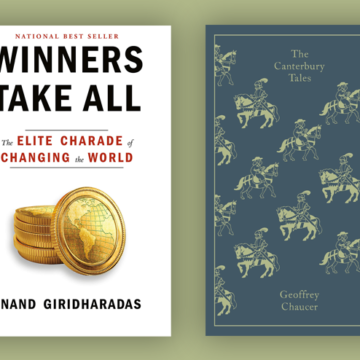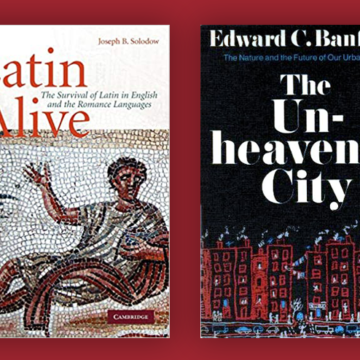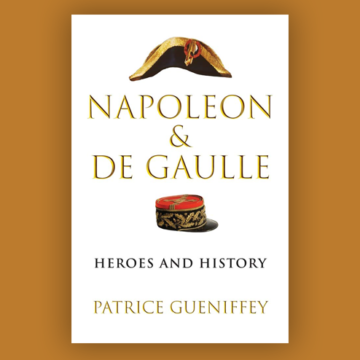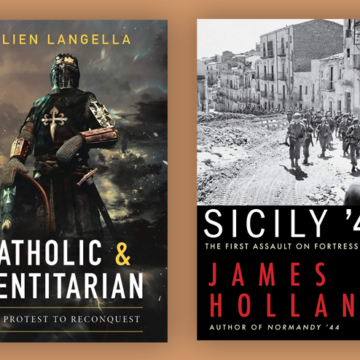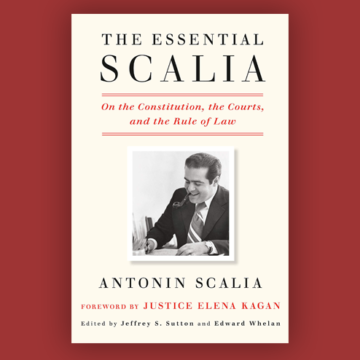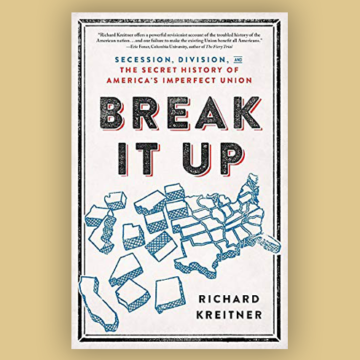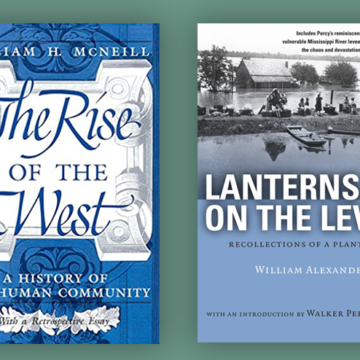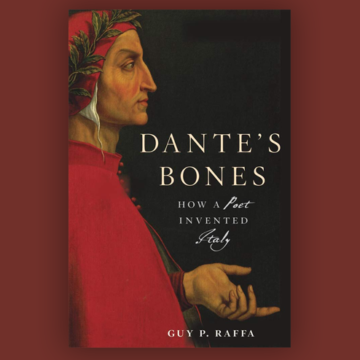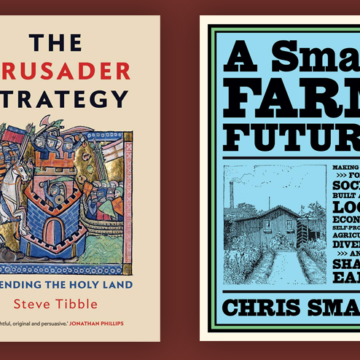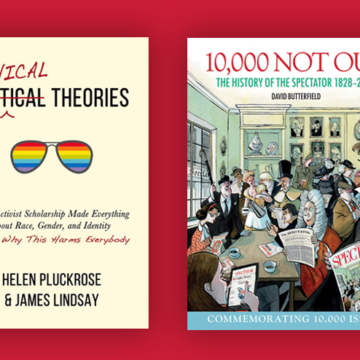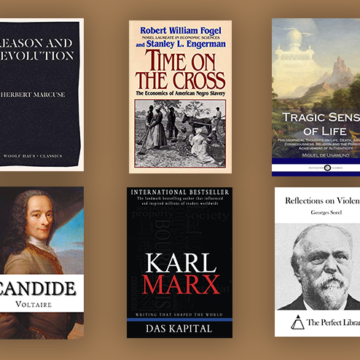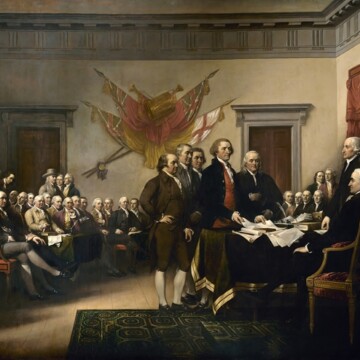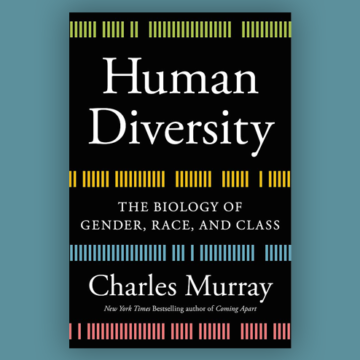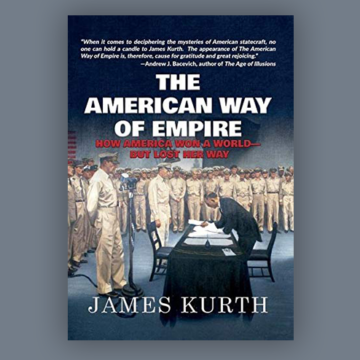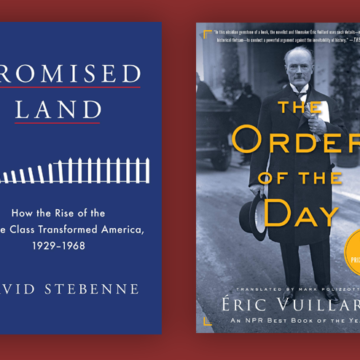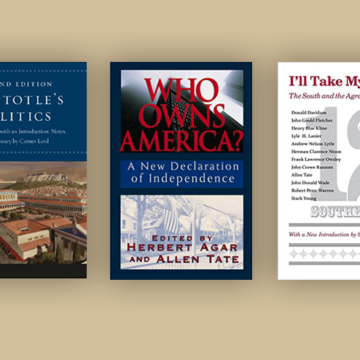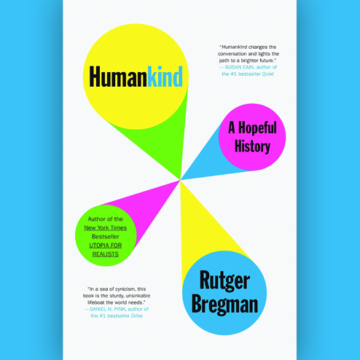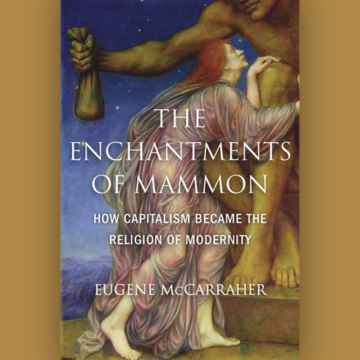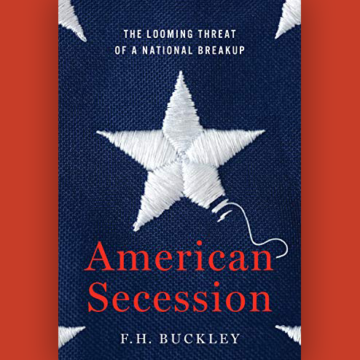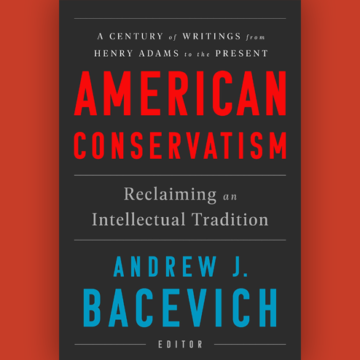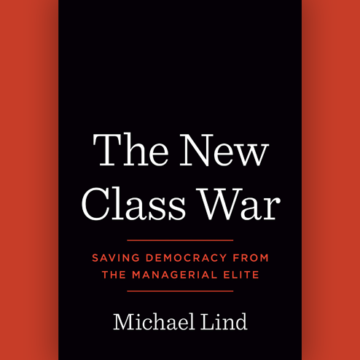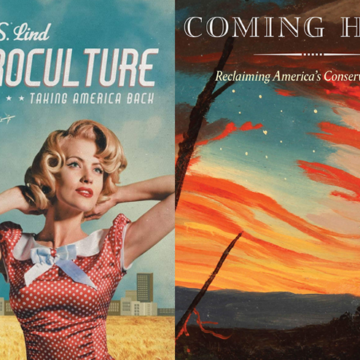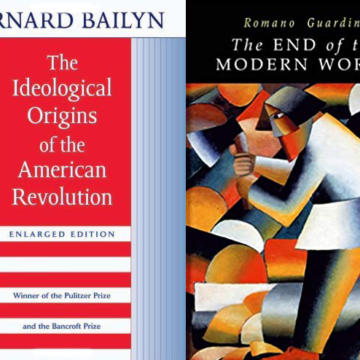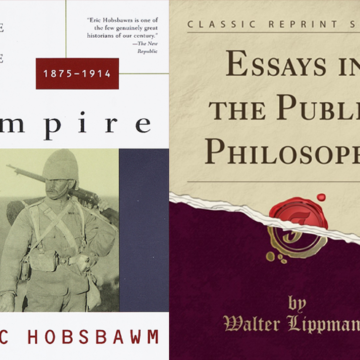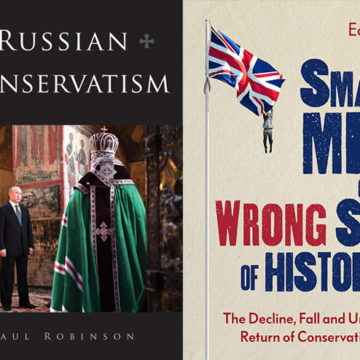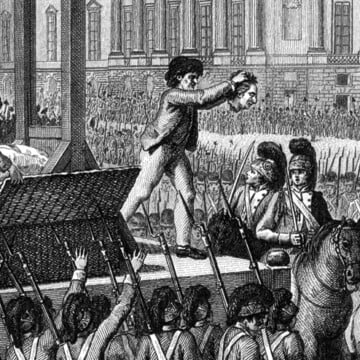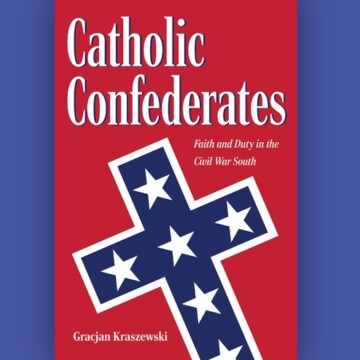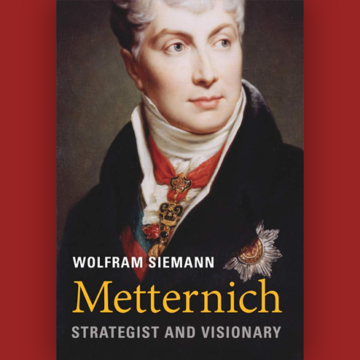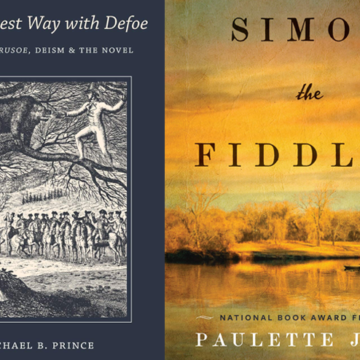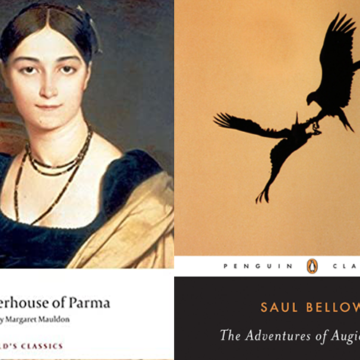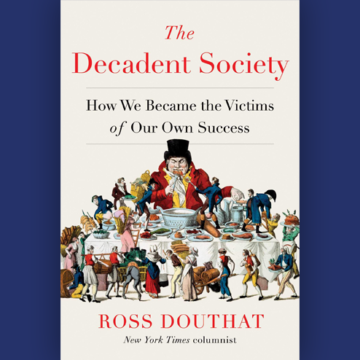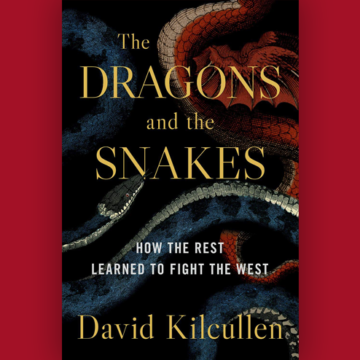The Education of John Adams; by R. B. Bernstein; Oxford University Press; 368 pp., $24.95 It is not fashionable these days to admire the Founding Fathers, and yet the flood of books, articles, and even Broadway musicals devoted to them has not ceased. Attention is usually focused on George Washington, Benjamin Franklin, Thomas Jeff erson,...
Category: Reviews
Days of Rage
The Hardhat Riot: Nixon, New York City, and the Dawn of the White Working- Class Revolution; By David Paul Kuhn; Oxford University Press; Hardcover, 416 pp., $29.95 Mayday 1971: A White House at War, a Revolt in the Streets, and the Untold History of America’s Biggest Mass Arrest; By Lawrence Roberts; Houghton Mifflin Harcourt; Hardcover,...
What the Editors Are Reading: The Zone of Interest
The novelist Martin Amis is the son of Kingsley Amis, whose Lucky Jim (1954) was a spectacular success. Noting the father’s “brilliance and ‘facile bravura,’” Atlantic critic Geoffrey Wheatcroft asserted that Martin “misunderstood his hereditary gifts when he turned from playful comedy to ‘the great issues of our time.’” Among his “great issues” is that of Nazi concentration camps,...
Grappling With Armageddon
The Bomb: Presidents, Generals, and the Secret History of Nuclear War; by Fred Kaplan; Simon & Schuster; 384 pp., $18.00 In 1958, former RAF officer Peter George (under the pseudonym Peter Bryant) wrote Red Alert, a novel about a communication accident that almost triggers a nuclear war. In a series of short, increasingly tense, time-stamped chapters,...
Laughing at the Hereafter
Heaven and Hell: A History of the Afterlife; by Bart D. Ehrman; Simon & Schuster; 352 pp., $28.00 Were popular success an index of scholarly mastery, Broadway musical composer Andrew Lloyd Webber would be recognized as a world authority on Christology. He is not, but Bart D. Ehrman is, and his presumptive expertise in the...
Books in Brief: April/May 2021
The Death of the Artist: How Creators Are Struggling to Survive in the Age of Billionaires and Big Tech, by William Deresiewicz (Henry Holt; 368 pp., $27.99). Members of a book club at my highly selective undergraduate business school were stung by William Deresiewicz’s portrait of careerist, grade-grubbing college students in his scathing 2015 book,...
What the Editors Are Reading: April/May 2021
The novelist Martin Amis is the son of Kingsley Amis, whose Lucky Jim (1954) was a spectacular success. Noting the father’s “brilliance and ‘facile bravura,’” Atlantic critic Geoffrey Wheatcroft asserted that Martin “misunderstood his hereditary gifts when he turned from playful comedy to ‘the great issues of our time.’” Among his “great issues” is that...
Historians Are Either Hedgehogs or Foxes
Illuminating History: A Retrospective of Seven Decades; by Bernard Bailyn; New York: W.W. Norton & Co., 2020; 288 pp., $28.95 Great historians must be first or primarily expert storytellers, insists historian Bernard Bailyn in his latest book. But the Pulitzer Prize winning author also declares that historians must be social scientists as well. Yet, if greatness...
Books in Brief: March 2021
America’s Revolutionary Mind, by C. Bradley Thompson (Encounter Books; 584 pp., $32.99). Thompson’s examination of colonial America’s natural rights political culture and the effects of the Declaration’s oft-quoted passage about unalienable rights is not likely to please members of the traditional right, and as such I consider it required reading. Thompson presents copious evidence that...
Haunts of Hobbits
The Worlds of J.R.R. Tolkien: The Places That Inspired Middle-earth; by John Garth; Princeton University Press; 208 pp., $29.95 Authors have always imagined alternate universes, but in the bulging gazetteer of authorial Erewhons—from the transient town of Abaton via Atlantis, Earthsea, and Hogwarts, to Zyundal in the Isles of Wisdom—none attract such obsessive attention as Tolkien’s...
The Life of the Mind
Lost in Thought: The Hidden Pleasures of an Intellectual Life; by Zena Hitz; Princeton University Press; 240 pp., $22.95 “What do I need to know for the test?” This common refrain, repeated endlessly by high school and undergraduate students, sums up one of the great heresies of our age: the view that learning is a...
Transitional Failures
Irreversible Damage: The Transgender Craze Seducing Our Daughters; by Abigail Shrier; Regnery Publishing; 276 pp., $28.99 You’ve seen the yard signs. “We believe…Black Lives Matter; No Human is Illegal; Love is Love…” The tone is pure emotive posturing, until you get to this statement: “Science is real.” This is the foundational rhetorical trick of the contemporary...
What the Editors Are Reading: March 2021
Someone’s head must have rolled at the Aspen Institute when Anand Giridharadas’ book came out. Giridharadas didn’t miss a rung as he climbed the American establishment’s social ladder: born in Shaker Heights, schooled at Sidwell Friends, the University of Michigan, and Harvard, employed at McKinsey, the International Herald Tribune, and The New York Times, and...
What the Editors Are Reading: February 2021
In 1989, Japanese businessman Minoru Isutani purchased Pebble Beach’s famous golf course for $850 million, and Mitsubishi Estate Company paid $846 million for 51 percent of New York’s Rockefeller Center. The United States cowered from the kamikaze attack of Japanese capital on American business. American students swamped Japanese language programs, as the Land of the Rising...
Dilution of Heroes
Napoleon and de Gaulle: Heroes and History; By Patrice Gueniffey; Belknap Press; 416 pp., $35.00 Both Napoleon Bonaparte and Charles de Gaulle rose in a time of turmoil and war to restore order. Napoleon’s service to France lay in ending revolutionary violence, while de Gaulle led free France in the struggle to overcome Nazi dominated Europe. The demerits...
Books in Brief: February 2021
Catholic & Identitarian, by Julien Langella (Arktos Media; 338 pp., $38.95). French commando Dominique Venner committed suicide inside Notre-Dame Cathedral in 2013 as an act of protest against unrestricted Islamic immigration. One cannot but censure Venner’s sacrilegious act. Yet, calling attention to the existential threat to the West in general and France in particular is...
Middle American Aviatrix
Taking Flight: The Nadine Ramsey Story; by Raquel Ramsey and Tricia Aurand; University Press of Kansas, 2020; 312 pp., $29.95 Taking Flight tells the remarkable tale of a courageous woman, Nadine Ramsey, who survived a difficult childhood to become Kansas’ first female commercial pilot, a World War II WASP (Women Airforce Service Pilot), an instructor of male fighter...
The Court’s Own Critic
The Essential Scalia: On the Constitution, the Courts, and the Rule of Law; By Antonin Scalia; Edited by Jeffrey S. Sutton and Edward Whelan; Foreword by Justice Elena Kagan; Crown Forum; 368 pp., $35.00 Steven Calabresi, one of the founders of the Federalist Society for Law and Public Policy Studies, maintains that Antonin Scalia was the greatest justice ever...
Union Without Unity
Break It Up; by Richard Kreitner; Little, Brown and Company; 497 pp., $30.00 Stamped on the United States’ three-dollar Continental bill in 1783 was the phrase, “The Outcome Is in Doubt.” A more appropriate phrase for our own time could hardly be found. It also serves as the subtext of journalist Richard Kreitner’s fascinating new book, which chronicles the...
The French Soul, in Stone
Notre-Dame: The Soul of France; by Agnès Poirier; One World Publications; 256 pp., $26.95 Kneeling in public remains rare in France. Even though Muslim crowds in the banlieues (suburbs) have recently taken to praying in the streets, religious display still shocks the country’s secular ethos, which prefers to severely confine religion to the private sphere. So, when a motley lot of...
What the Editors Are Reading: January 2021
First the crazies tore down statues they deemed offensive. Next they vandalized churches. Then they demanded trigger warnings on classic movies like Gone with the Wind and Blazing Saddles. If these monsters ever discover libraries, books will be next. Let me suggest you hoard copies of William McNeill’s The Rise of the West: A History of the Human Community (1963) before...
The Sepulcher as Political Symbol
Dante’s Bones: How a Poet Invented Italy; by Guy P. Raffa; Harvard University Press; 384 pp., $35.00 The bones and dust of the Roman poet Virgil were jealously guarded by the people of Naples. In the Middle Ages they refused the request of an English scholar to allow the poet’s bones and dust to leave their resting place. The...
Books in Brief: January 2021
The Crusader Strategy: Defending the Holy Land, by Steve Tibble (Yale University Press; 376 pp., $35.00). If one gets his Crusades history from Karen Armstrong or the History Channel, one is likely to think that nasty and brutish Franks went off half-cocked to the Holy Land to rape, pillage, and enslave peaceful Muslims. This is an ignorant...
Books in Brief: December 2020
Cynical Theories: How Activist Scholarship Made Everything About Race, Gender, and Identity—and Why This Harms Everybody, by Helen Pluckrose and James Lindsay (Pitchstone Publishing; 352 pp., $27.95). To understand wokeness, I often ask students to explain why they add the word “social” to “justice.” They have yet to provide a satisfactory answer. My subsequent requests for clarification...
What I Learned From the Left
In The Politics of Prudence, Russell Kirk dismissed the notion of conservatism grounding itself in a single foundational text. Since conservatism is “neither a religion nor an ideology,” Kirk concluded it “possesses no Holy Writ and no Das Kapital to provide dogmata.” Sure, Chronicles readers can recite the political dicta of Edmund Burke, Joseph de Maistre, and John Adams. We confront life’s complexity...
What the Editors Are Reading: December 2020
Richard Holbrooke was the most shameless self-promoter in Washington D.C., a town that specialized in self-promotion, as George Packer writes in Our Man: Richard Holbrooke and the End of the American Century. He was a social climber par excellence, a sycophant who embarrassed Barack Obama with his flattery to such an extent that he was banned from the...
Defending the Founding Against the Right
America on Trial: A Defense of the Founding; by Robert R. Reilly; Ignatius Press; 384 pp., $27.95 Few observers of America today would doubt that the republic is in crisis. The crisis stems from a growing skepticism over the truth and validity of the principles of the American founding. For the political left to question...
The Disillusionment of Diversity
Human Diversity: The Biology of Gender, Race, and Class; by Charles Murray; Twelve Books; 528 pp., $35.00 When I was a graduate student in the 1990s, the following joke elicited knowing grins even from those sympathetic to the impenetrable French postmodernist theory that was then making the rounds: Q: Have you read the new Derrida? A: Read it? I...
The Adolescent Empire
The American Way of Empire: How America Won A World—But Lost Her Way; by James Kurth; Washington Books; 464 pp., $30.00 “The most important feature of an empire,” James Kurth explains in his brilliant new book: …is how it seeks to order not just its own territories but an entire world, to set the standard for the way of...
Books in Brief: November 2020
Promised Land: How the Rise of the Middle Class Transformed America , 1929-1968, by David Stebenne (Scribner; 336 pp., $28.00). Dear David: I used the title of Sergio Leone’s The Good, the Bad, and the Ugly as my grading rubric for your submission on the 20th-century American middle class. Your work recaps the period’s economic, social, cultural, and...
What the Editors Are Reading: November 2020
The Politics may be the most influential study of political theory and political practice ever written. Aristotle put the book together while investigating different regimes in the Greek world and elsewhere. The philosopher denies the existence of an ideal government applicable to all societies; instead, he looks at various governments that are appropriate for different peoples in...
Innocence and Experience
Humankind; by Rutger Bregman; Little, Brown, and Co.; 480 pp., $30.00 Rutger Bregman’s latest book is about what he calls a “radical idea” that has “long been known to make rulers nervous” and whose apostles will weather “a storm of ridicule.” When we learn that Bregman’s thinking is in radical opposition to Thucydides, Augustine, Machiavelli, Hobbes, Burke,...
The Serfs of Silicon Valley
The Coming of Neo-Feudalism; by Joel Kotkin; Encounter Books; 244 pp., $28.99 In the summer of 2003 my bride, our three little kids, and I headed to Chicago for that all-important summer job after my second year of law school. We acquired a “summer lease” for an apartment on North Orchard Street in the highly sought-after neighborhood of...
The Church of Money-Grubbing Toil
The Enchantment of Mammon: How Capitalism Became the Religion of Modernity; by Eugene McCarraher; Belknap Press; 816 pp., $39.95 When the German thinker Max Weber visited the United States in 1904, he was intrigued by the marked tendency of Americans to think about economic activity against a backdrop of religious morality. He tells of an encounter with a salesman of...
Secession Becomes Thinkable
American Secession: The Looming Threat of a National Breakup; by F. H. Buckley; Encounter Books; 184 pp., $23.99 When asked whether a state can constitutionally secede from the United States, Supreme Court Justice Antonin Scalia brushed the question aside, saying the matter was settled by the Civil War. He was wrong. A Zogby poll in 2018 found that...
Rebranding the Right
American Conservatism: Reclaiming an Intellectual Tradition; Edited by Andrew J. Bacevich; Library of America; 663 pp., $29.95 A couple years after Russell Kirk’s death, I made a pilgrimage to his ancestral home in Mecosta, Michigan. My buddy and I looked at a map and plotted our course. We didn’t have an address but we didn’t...
The Poor Man’s Sam Francis
The New Class War: Saving Democracy From the Managerial Elite; by Michael Lind; Portfolio; 224 pp., $25.00 A mostly white, cosmopolitan “overclass” rules America with a technocratic fist through the union of public and private spheres after pulling off a “revolution from above,” Michael Lind argues in his latest book. As Lind sees it, the country’s political institutions...
Books in Brief: October 2020
Retroculture: Taking America Back, by William S. Lind (Arktos Media; 212 pp., $18.95). One of the editors of this publication practically laughed in my face when I recently proclaimed myself a “city girl.” “You’re not a city girl,” he snorted, “you are Little House on the Prairie all the way!” Had he read Bill Lind’s latest,...
What the Editors Are Reading
The New York Times recently spoke ex cathedra on the American founding through its “1619 Project.” You probably learned in grade school a cartoonish story about white guys in powdered wigs declaring America’s independence in 1776. The Sulzberger family’s College of Cardinals have declared the nation’s birth year was actually 1619, when the first hapless African slaves landed on...
What Civil Rights Hath Wrought
The Age of Entitlement: America Since the Sixties; by Christopher Caldwell; New York: Simon & Schuster; 352 pp., $28.00 The social and legal order that emerged from the civil rights movement of the 1960s now dominates public life. While Christopher Caldwell seems to accept in his new book the view of that movement as at least initially a...
What the Editors Are Reading
Everyone to Bernie Sanders’ right gasped in 1994 when radical British historian Eric Hobsbawm argued that Communist regimes who murdered millions “would still have been worth backing” had there been a “chance of a new world being born in great suffering.” The diabolically deranged never connect maniacal theory to deadly results. We can’t psychoanalyze Hobsbawm, who...
Books in Brief
Russian Conservatism, by Paul Robinson (Northern Illinois University Press; 300 pp., $39.95). Canadian historian Paul Robinson has written a highly accessible study of Russian conservatism that extends from the early 19th century down to the present time. According to Robinson, defenses of the Russian homeland as a spiritual entity and the accompanying rejection of Western late modernity...
Old Story, New Resonances
A New World Begins: The History of the French Revolution by Jeremy D. Popkin; Basic Books; 640 pp., $35.00 Zhou Enlai was asked in the early 1970s what he, one of the architects of the Chinese communist revolution, thought of the French Revolution. His response: “Too early to say.” The international press seized upon that comment, which satisfied...
Catholic Comfort for a Wounded South
Catholic Confederates: Faith and Duty in the Civil War South by Gracjan Kraszewski; The Kent State University Press; 216 pp., $45.00 Brother Brutus J. Clay, S.J., was a fixture at Loyola University in the early-to-late 1990s. The wiry Southerner with a thick Kentucky accent not only attended to the Jesuit Fathers’ chapel as sacristan, but was involved...
Solid Strategy, Limited Vision
Metternich: Strategist and Visionary by Wolfram Siemann; Translated by Daniel Steuer; Belknap Press, Harvard University; 928 pp., $39.95 All states need a strategy, however rudimentary, in order to survive. Great powers need much more: a viable grand strategy for war and peace is called for to endure in the never-ending struggle for power, land, and resources. As A.J.P. Taylor...
Books in Brief
The Shortest Way With Defoe—Robinson Crusoe, Deism, and the Novel, by Michael B. Prince (University of Virginia Press; 350 pp., $69.50). Daniel Defoe’s 1722 novel A Journal of the Plague Year has been much-read recently, for obvious reasons. But of course we remember him chiefly for 1719’s Robinson Crusoe, which was immediately popular for its new, realistic style, and...
What the Editors Are Reading
Stendhal was the pen name of Marie-Henri Beyle, who adopted it from the name of a German town he had seen with Napoleon’s army. His 1839 novel of the Napoleonic era, La Chartreuse de Parme (The Charterhouse of Parma), was welcomed by a favorable and important review by Honoré de Balzac, and André Gide, an astute critic, included...
A Decadent Diagnosis
The Decadent Society: How We Became Victims of Our Own Success by Ross Douthat; Avid Reader Press; 272 pp., $27.00 The ancient latin aphorism per aspera ad astra (“through rough things, to the stars”) might well be a fitting epigraph for New York Times columnist Ross Douthat’s latest book. Its cover features a 19th century French illustration of Rabelais’ Gargantua et Pantagruel being fed...
Slaying Dragons, Coddling Snakes
The Dragons and the Snakes: How the Rest Learned to Fight the West by David Kilcullen; Oxford University Press; 336 pp., $27.95 When the West defeated the Soviet Union, CIA Director R. James Woolsey, Jr., observed that we had “slain a large dragon” only to face a “bewildering variety of poisonous snakes.” Hamas, Hezbollah, al-Qaeda, and a proliferation...
What the Editors Are Reading
Swedish author Pär Lagerkvist won the Nobel Prize for literature largely on account of his remarkable novel Barabbas (1950). It is like and unlike the best of other such novels based on events surrounding the life of Christ: Henryk Sienkiewicz’s Quo Vadis (1896) and Riccardo Bacchelli’s Lo sguardo di Gesù (The Countenance of Jesus) (1954)....


